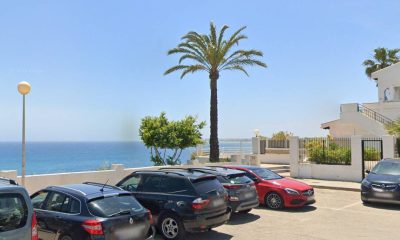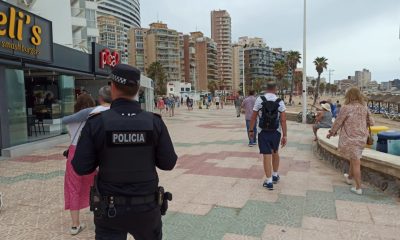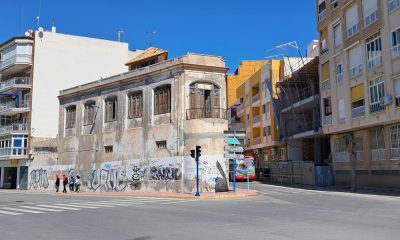Costa Blanca
A blow to an armed gang that extorted cannabis clubs in the Vega Baja
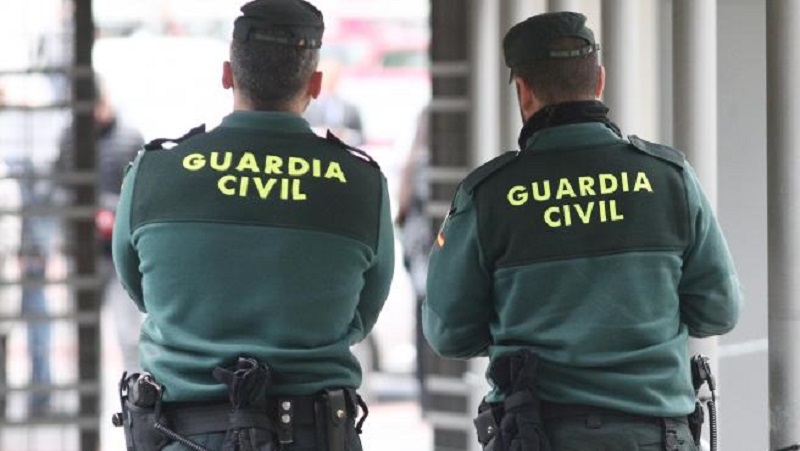
“We are uncompromising; we will pursue the war against anyone. I am aware that you have a wife and children,” that’s one of the mafia-tinged threats sent to the owner of a cannabis club in San Fulgencio. In October, a British-born criminal gang that has been partially dismantled by the Guardia Civil for extorting cannabis smokers’ associations in the Vega Baja to take control of these establishments through death threats and intimidation with firearms robbed the owner of a cannabis club in San Fulgencio.
The gang, which functions similarly to a cartel, ultimately gained control of at least two cannabis smoking associations in the Vega Baja region. The investigation commenced with a burglary that occurred at a club in San Fulgencio last October. The owner was extorted and threatened with death in order for the group to retain half of the profits. Initially, he refrained from filing a complaint due to fear, as they threatened to “blow his head off” if he went to the police.
The Guardia Civil has apprehended two members of this gang since the robbery and is currently in the process of locating at least four additional individuals who were involved in the incident. Three Guardia Civil officers were injured by the suspect, who confined himself in the residence of a foreign couple and offered significant resistance, during the most recent arrest in Orihuela Costa at the beginning of April.
Two submachine guns, which are classified as weapons of war, and over 300 cartridges of varying calibres were present at the residence of the detainee, who was imprisoned and assisted by counsel Francisco Miguel Galiana Botella. The Guardia Civil’s investigation has verified that the 32-year-old man from Liverpool, who was previously known as Sonny James R., changed his name to Peter F. last year. The investigation also revealed that he has a lengthy criminal history in the U.K.
According to the Guardia Civil investigation, 85 amphetamine pills were confiscated from him at a club in Orihuela Costa, which the gang had also taken control of through threats. The court is now charging him with robbery with violence, threats, extortion, illegal possession of weapons, and drug trafficking. Additionally, he was charged with assault and assault and battery of three of the five officers who were required to subdue him, as a result of the kicks and strikes he employed to evade arrest. The Guardia Civil also incorporated the offences of unlawful detention and membership in a criminal organisation into its complaint.
The Organised Crime and Anti-Drug Team (EDOA) of the Organic Judicial Police Unit of the Guardia Civil of Alicante is conducting the investigation in collaboration with the Territorial Judicial Police Team of Guardamar.
In these Vega Baja neighbourhoods, the extortion schemes of this gang have caused widespread social alarm. Witnesses have declined to testify before investigators due to their dread of the members of this criminal group, whom they regard as highly dangerous.
The robbery at a cannabis club in the La Marina neighbourhood of San Fulgencio was carried out on the afternoon of October 23rd, but the Guardia Civil was unaware of the incident until early November, when the wife of the establishment’s owner requested assistance through the Alertcops app. This was due to the fact that the victims did not file a crime report. Her wife reported that Sonny R., a British individual, had abducted her husband and the father of her children. She also stated that two weeks prior, he had requested €25,000 in payment. Additionally, she reported that two armed individuals had entered the garden of her residence in Pilar de la Horadada.
The victims reported the robbery following this contact, and the Guardia Civil established surveillance around the cannabis association, which is led by the complainant’s partner. A British male who had exited the club was apprehended and subsequently identified as one of the six perpetrators of the robbery.
The cannabis, €600 of the takings, and other personal belongings were confiscated after one of the club’s employees was threatened with a pistol during the robbery. The gang informed the owner, who was absent and was contacted by phone, that he was required to pay them €25,000, that they would retain half of the club’s proceeds, and that they would assume control from that day forward. In reality, they seized the keys to the establishment and commenced robbing the club the following day.
In addition to the information provided about Sonny, the complainant also disclosed to the Guardia Civil that he had a meeting with another member of the criminal organisation following the robbery. The individual attempted to coerce him into signing a document that acknowledged that half of the business belonged to the gang that had robbed him, using threats. The six individuals who participated in the robbery accompanied him, but they did not assault him despite his refusal.
After the robbery, the British man who was apprehended in early April had departed Spain for several months. He is associated with two gunshots in the Liverpool area, one of which occurred at his mother’s residence, in the United Kingdom. Upon recognising the Guardia Civil’s presence in Orihuela Costa, he sought refuge in the residence of a married couple. Subsequently, he attempted to escape through the back entrance, but investigators apprehended him.
Discover more from Costa Blanca Daily
Subscribe to get the latest posts sent to your email.
Costa Blanca
Torrevieja fails to comply with its commitment to open new road at La Hoya for Easter
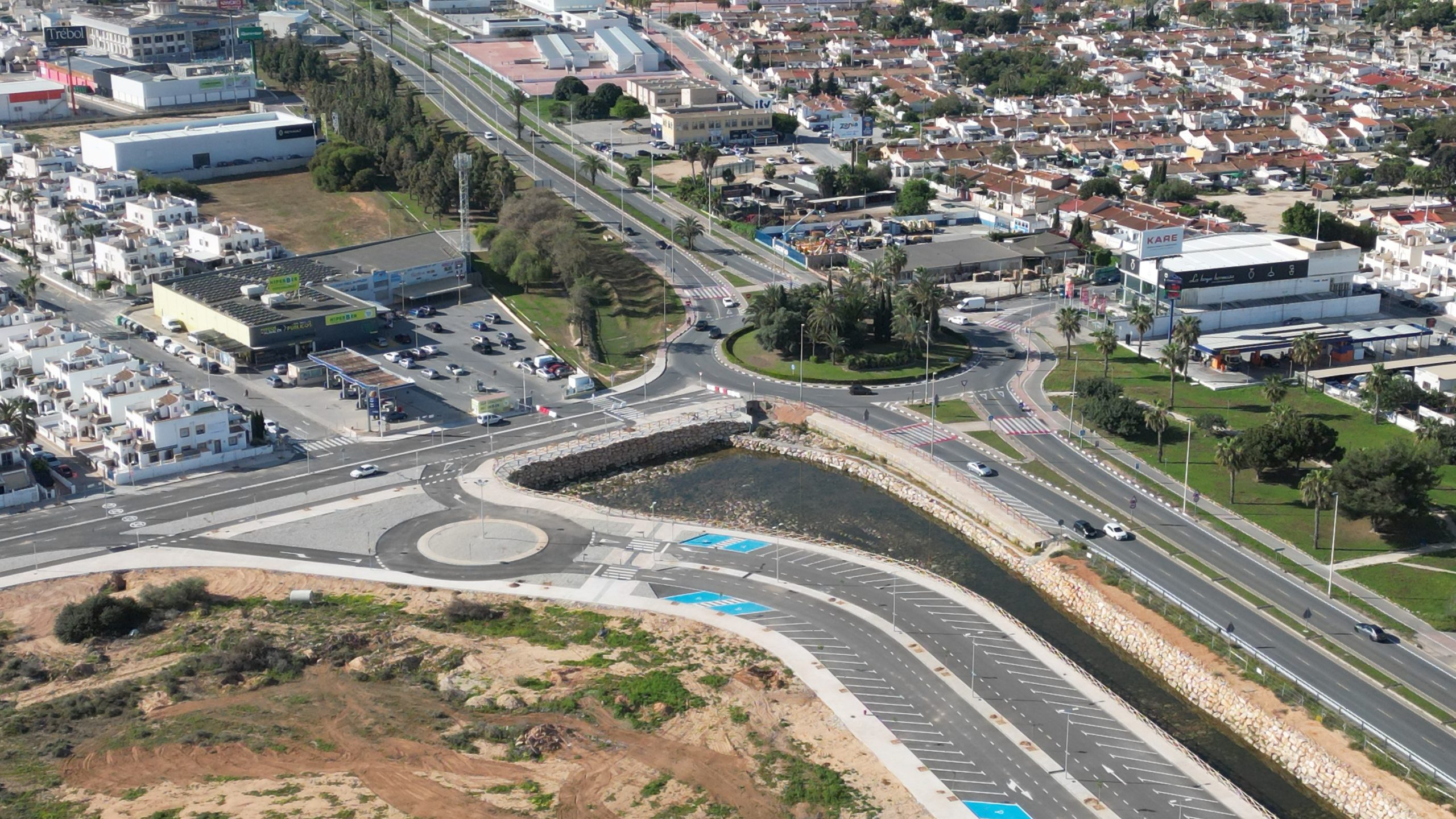
Eduardo Dolón (PP), the mayor of Torrevieja, announced at the beginning of April that the new Avenida José Carreras in the La Hoya residential area would be open to alleviate some of the traffic flow between the main access and exit road to the city, the CV-905, and the northern part of the town this Easter. However, the mayor’s announcement remains unfulfilled.
In his press conference last Thursday, April 17th , the Councillor for Traffic and Safety, Federico Alarcón, did not provide any explanation regarding the matter. Neither did the government team, even on Instagram, which is typically one of their primary communication channels.
This Easter Sunday, the road is still closed to traffic.
On April 3rd, Dolón responded to media enquiries by stating that municipal technicians and representatives of the developer had conducted numerous meetings to facilitate the opening of the four-lane avenue to traffic, with two lanes in each direction.
Given the significant tourist influx during Easter and the congested CV-95, the opening of this road was considered appropriate. By doing so, it would alleviate the traffic congestion.
The mayor clarified that the City Council must certify the first phase of the development being constructed, while a provisional acceptance of that section of road will be conducted.
Through the administrative process of reception, technicians verify that the works executed by a developer within an urban development plan that has been authorised by the municipality are in accordance with the project’s investment and on-site characteristics.
Víctor Costa, the Director General of Urban Planning at Torrevieja City Council, is currently responsible for validating receipts. It is crucial to consider the administrative process, as it is exceedingly challenging to hold the developer accountable in the event that the City Council identifies deficiencies subsequent to receipt.
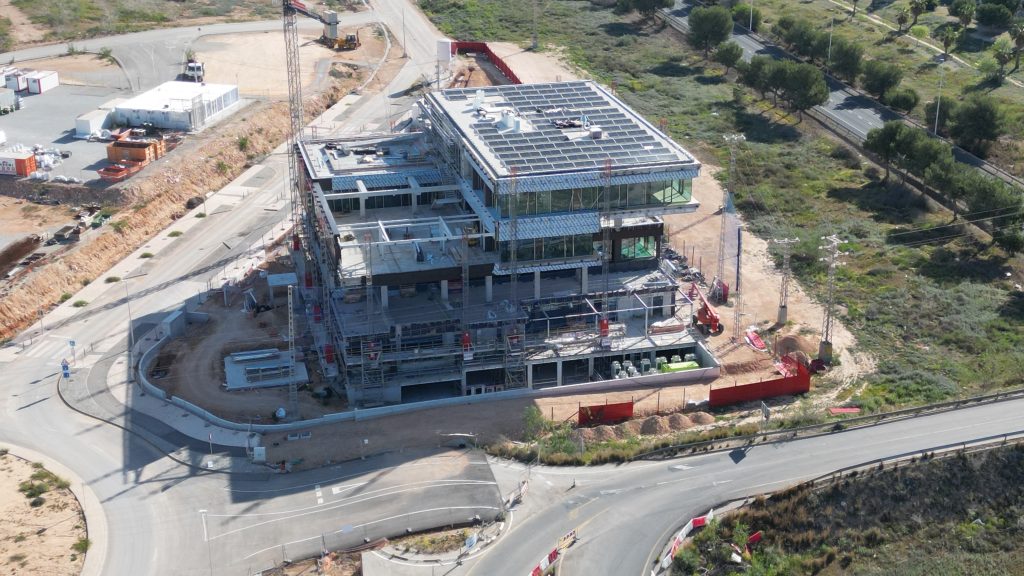
The avenue is more comprehensive than those implemented in other developments in the area in terms of furniture, signage, safety, pedestrian conditions, and accessibility; it spans over one kilometre and the end of the new road, near the N332 (above) doesn’t look fit for traffic as there appears to be a steep incline making it impossible for the likes of buses to naviagate.
The connection between the CV-905 and the northeast area of the Torrevieja municipality has been closed for just over a year. This closure was due to the construction of the macro-urban development project, which will build 7,500 new residential homes in the sector starting in October 2023. The road, which is commonly referred to as the “swiggly road,” is used daily by hundreds of drivers to traverse the city centre.
This year, the Traffic Department has devised an alternative route that traverses numerous residential areas.
Discover more from Costa Blanca Daily
Subscribe to get the latest posts sent to your email.
Costa Blanca
Walkway from Aguamarina to La Caleta in Cabo Roig will reopen, again
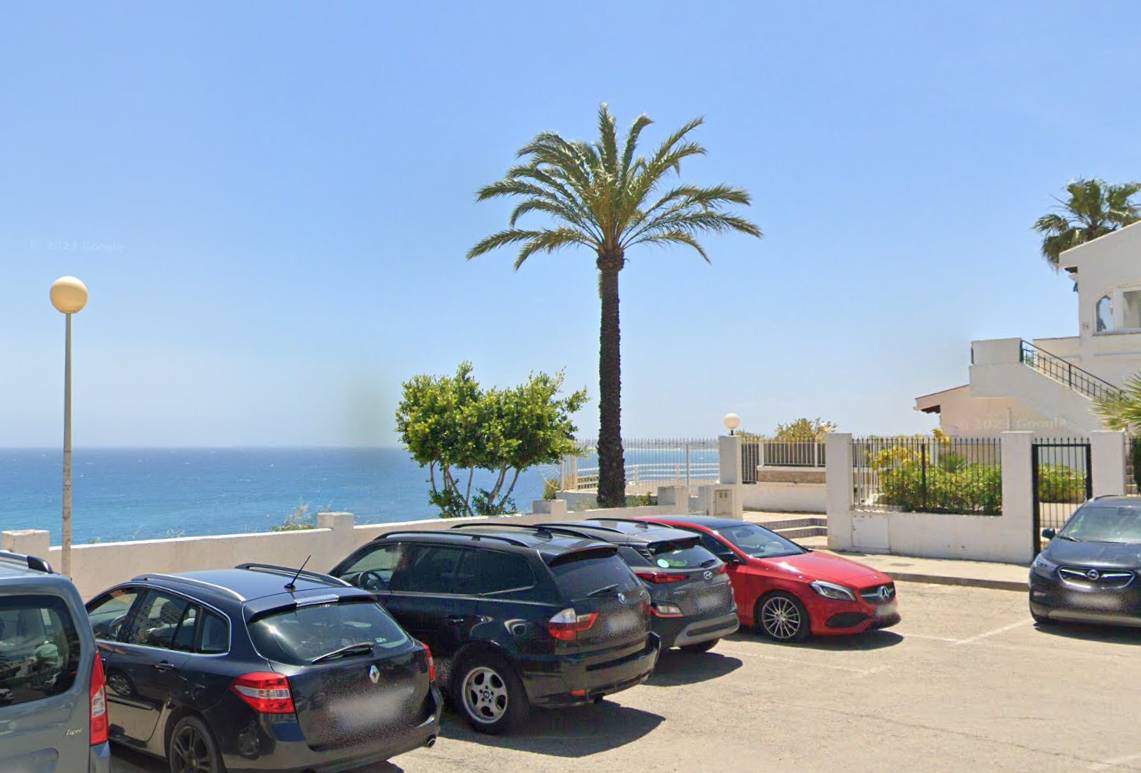
According to the notification from the Provincial Expropriation Jury to the Orihuela City Council following its approval of the court’s appraisal report, the municipal coffers will incur a cost of 26,180 euros for the expropriation of the land to reopen the pedestrian crossing connecting Aguamarina with La Caleta in Cabo Roig, near the Bellavista development.
The City Council has now requested that the Treasury deposit the specified amount in the receptacle and proceed with the preoccupation of reopening the promenade this summer.
Unable to reach an agreement, the local government and the proprietors brought the process before the provincial jury. Almost 17 times the municipal technicians’ calculation (€69,113), the proprietors presented a valuation of €1.2 million for their 227-square-metre cliffside plots in January of last year.
Nevertheless, this proposition was a decrease from the 3 million euros that they had initially requested. The 52 residents of the residential complex have established a price of approximately 170,000 euros for the 142 square meters of land that is to be expropriated, which is a decrease from the previous price of 2 million euros. Conversely, Cabo Roig SA has requested 987,000 euros (previously 1 million euros) for 85 square meters of hotel use. The City Council’s initial assessment was 44,000 euros.
The jury ultimately found that the City Council had to pay just over €26,000. The 2024 budget allocated €600,000 for the expropriation of the land and the necessary works to reinstate an idyllic pedestrian promenade along the Orihuela coastline. This should be kept in mind. This promenade has been accessible to the public for many years, but it has been closed since December 2021. The City Council closed it in accordance with a court judgement, which necessitated a two-kilometre diversion for residents and numerous visitors to circumvent a section that was only 60 metres in length.
The residential development was authorised prior to the Coastal Law and the General Urban Development Plan (PGOU) of 1990, which mandated that the initial line be used for public purposes. Nevertheless, the City Council refrained from expropriating this section, which ensured the promenade’s continuity along the entire littoral. In 2013, the residents of the development constructed a wall to seal off the path that runs along the precipice and is adjacent to the gardens of their residences.
In 2013, the local government, at the request of the socialist Antonio Zapata, the councillor for urban planning at the time, initiated the process of restoring urban planning legality against the development. The process involved the installation of a barrier and a wall, which impeded traffic on the section.
In March 2015, City Hall employees employed sledgehammers to breach the gate and wall, thereby allowing the public access to the trail, with the support of the Supreme Court of Justice (TSJ). In 2016, the Elche Administrative Court ruled in favour of the residents of the development, annulling the rulings and directing City Hall to restore the cliff walkway at the Bellavista I residential complex, which was never considered public property.
Although the local government has been appealing its enforcement, the ruling became final when the City Council, which was then governed by the People’s Party (PP), did not appeal. The Provincial Coastal Service reported in May 2017 that a right of way impacted the land in Aguamarina. Consequently, the 52 residents of the residential complex were unable to close the passageway and were required to maintain it undisturbed.
The City Council filed an appeal against the October 4th, 2018, order, which ordered the fencing and restitution of the demolished wall. The TSJ overturned the appeal in a November 2020 ruling, stating that the wall was legally constructed by the residents prior to the implementation of the current Coastal Law, which is the foundation of the Provincial Coastal Service’s right of way discussion. The City Council assumed the report and was subsequently obligated to execute the 2016 ruling, which mandates the reconstruction of the demolished perimeter fence and annuls the 2013 agreement of the Governing Board and the 2015 demolition decree.
Therefore, in December 2021, it was once again closed to adhere to the ruling, which mandated that the City Council restore it to its original condition.
Discover more from Costa Blanca Daily
Subscribe to get the latest posts sent to your email.
Costa Blanca
Crackdown on illegal sales in Calpe
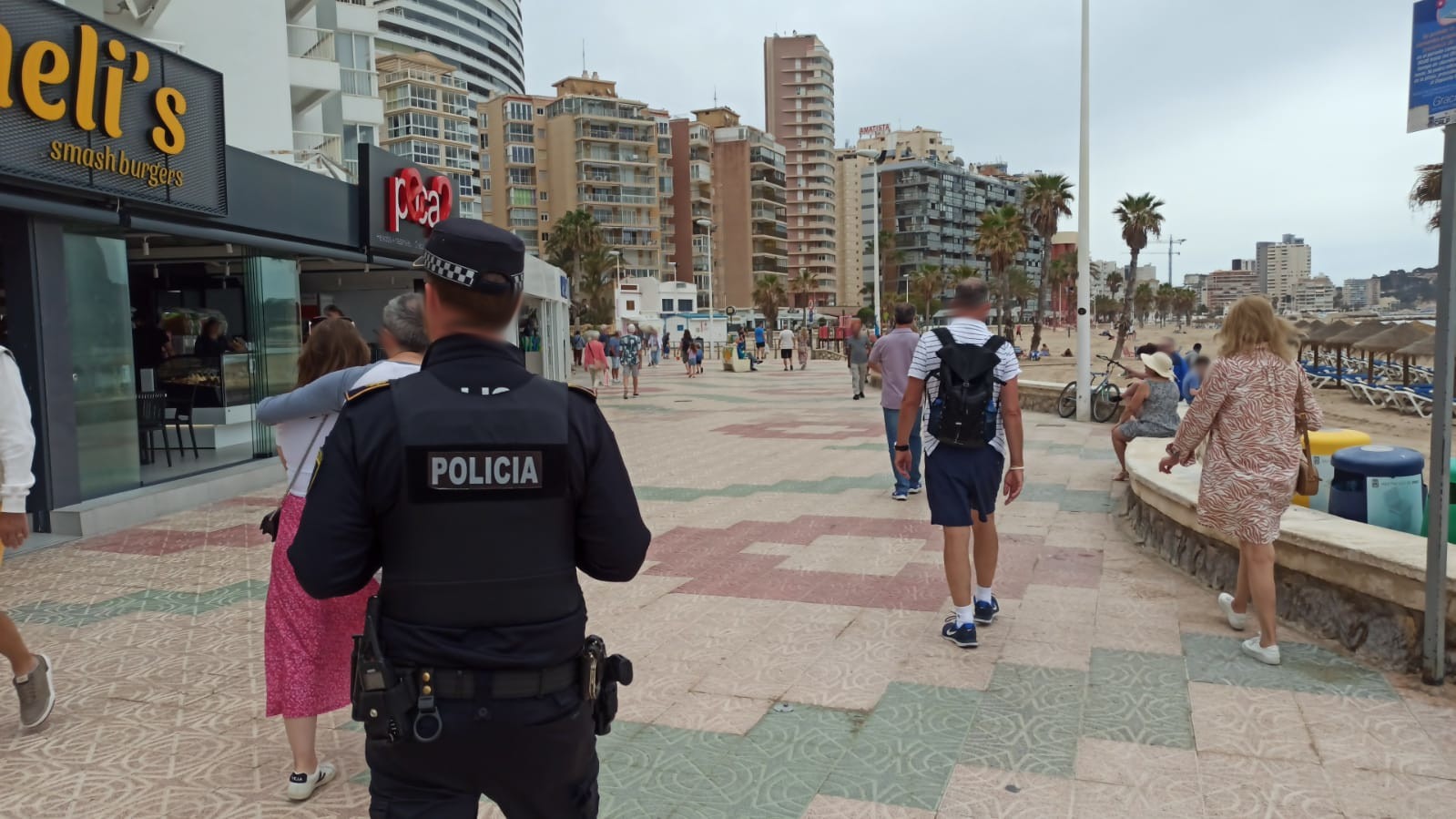
As part of a campaign against street vending that will be further bolstered in the spring and summer of 2025, the Guardia Civil and Local Police have deployed over 25 officers and a drone to the beaches of Levante and Poniente.
A police operation was conducted a few days ago to combat the illicit sale and counterfeiting of products by plainclothes and uniformed officers from the Guardia Civil and the Calpe Local Police. The prevention and deterrent campaign against illicit street vending will persist throughout the spring and summer of 2025, and this action is a component of it.
The Guardia Civil officers from the Main Post and the specialised unit PAFIF (Tax and Border Patrol), which monitors borders and controls taxation in our country, as well as the UTAI and USC CALP units of the Calpe Local Police, were involved in the police operation, which was aided by a drone from the UMAC (Calpe Local Police Aerial Means Unit). This police operation, which was conducted on the Levante and Poniente beaches of Calpe, involved over 25 officers from both forces.
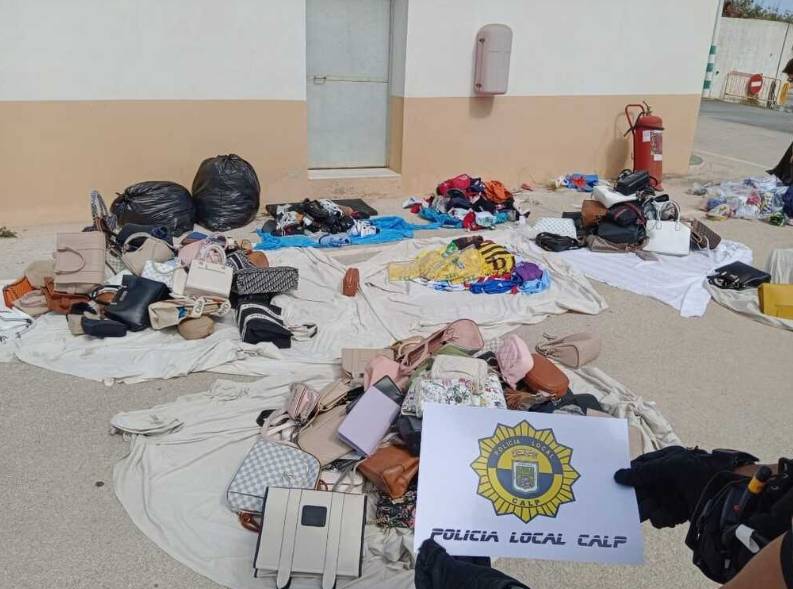
In the course of the operation, 180 leather products, 212 T-shirts, 38 swimsuits, 12 caps and 291 pairs of trainers were confiscated, in addition to five vehicles that were purportedly used as warehouses. The prospective market value of all counterfeit items, which includes the value of the immobilised vehicles and the seized materials, is €15,000. The competent authorities were also informed of the sellers who were identified.
The Councillor for Citizen Security of the Calp City Council, Guillermo Sendra Guardiola, conveyed his satisfaction with the positive relationship and spirit of collaboration and cooperation between the Guardia Civil and the Local Police. “The councillor underscored that the fact that both forces are collaborating, despite their differences in resources and efforts, results in heightened safety for Calpe residents and visitors.”
The local government’s dedication to law enforcement is complemented by its efforts to increase community awareness of the risks and repercussions of supporting this unlawful trade, as the municipal ordinance prohibits both the street sale and purchase of these products.
Discover more from Costa Blanca Daily
Subscribe to get the latest posts sent to your email.
-
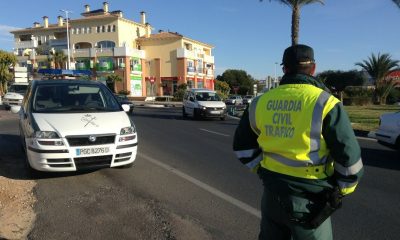
 Costa Blanca2 weeks ago
Costa Blanca2 weeks agoThis week the DGT will issue over 64,000 speeding tickets
-

 Costa Blanca2 weeks ago
Costa Blanca2 weeks agoSix arrested for the use of AI to defraud over 19 million euros
-
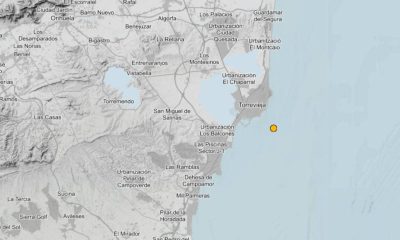
 Costa Blanca5 days ago
Costa Blanca5 days agoTorrevieja records a 2.8 magnitude earthquake
-

 Costa Blanca1 week ago
Costa Blanca1 week agoSpanish family killed in helicopter crash in New York
-

 Costa Blanca2 weeks ago
Costa Blanca2 weeks agoFire in Benidorm sees two being treated for smoke inhalation
-

 Costa Blanca2 weeks ago
Costa Blanca2 weeks agoBeware if you receive an orange envelope in your postbox
-

 Costa Blanca2 weeks ago
Costa Blanca2 weeks agoWhy aren’t salaries in Spain rising while everything else is?
-

 Costa Blanca2 weeks ago
Costa Blanca2 weeks agoPolice are investigating a shooting in Alicante

